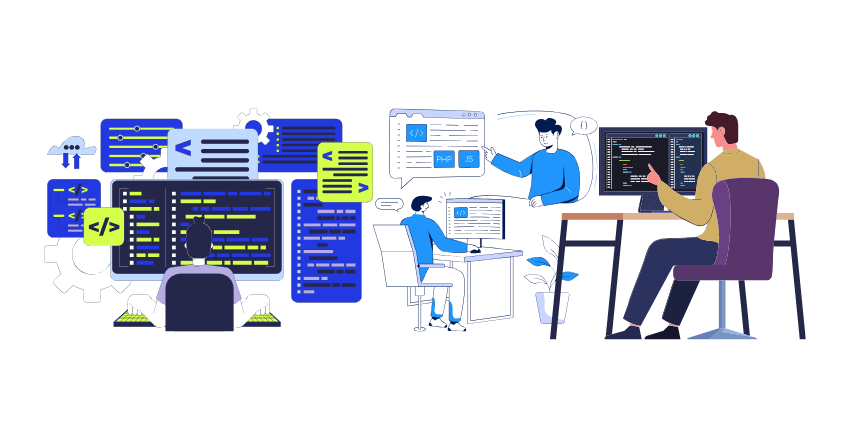Human cloud platforms are revolutionizing the way organizations operate and increase productivity. These online platforms connect workers with project-based work, providing a flexible and scalable workforce solution. From popular freelance platforms like Upwork and Fiverr to ride-sharing services like Uber and Lyft, the human cloud encompasses a wide range of digital work opportunities.
The human cloud is experiencing rapid growth, with an annual spending of $80 billion on human cloud technologies. Businesses are turning to these platforms to tap into a diverse talent pool and leverage the advantages they offer. However, it’s important to recognize the limitations and potential legal issues associated with the human cloud.
Staffing firms are adapting to the rise of human cloud platforms by leveraging technology to provide a hybrid approach. By integrating the human cloud with traditional staffing, these firms offer personalized and high-touch experiences to meet the evolving needs of organizations.
The Rise of the Gig Economy and Freelance Platforms
The gig economy has experienced significant growth, with freelance platforms becoming a popular choice for organizations seeking project-based talent. These platforms, such as Upwork and Fiverr, have revolutionized the way businesses connect with independent professionals, offering a wide range of services and skills.
Freelance platforms provide several advantages for organizations. First and foremost, they offer access to a diverse talent pool from around the world. This global reach enables businesses to find specialized expertise and skills that may not be readily available in their local market. Furthermore, freelance platforms provide flexibility in terms of work arrangements, allowing organizations to hire talent for specific projects or tasks, without the need for long-term commitments.
Freelance platforms offer flexibility, access to diverse talent, and cost savings for organizations seeking project-based talent.
Remote talent pools have become an integral part of the gig economy. With the rise of online platforms, individuals can now offer their services remotely, breaking geographical barriers and providing organizations with a global talent marketplace. This not only brings cost savings but also fosters innovation and creativity by bringing together diverse skill sets and perspectives.
The Digital Workforce and Online Job Platforms
Online job platforms have given rise to a digital workforce, offering individuals the opportunity to participate in the human cloud and perform various tasks on their own terms. The proliferation of platforms like Uber and Lyft has transformed traditional industries, allowing individuals to become drivers and earn income through ride-sharing services. Similarly, platforms like TaskRabbit and Freelancer have created opportunities for individuals to offer their skills and services on a project basis.
One of the key advantages of online job platforms is the flexibility they provide. Workers can choose when and where they want to work, allowing them to create their own schedules and achieve a better work-life balance. This flexible arrangement is particularly beneficial for those who have other commitments or prefer non-traditional work arrangements. Additionally, online job platforms provide access to a diverse talent pool, allowing organizations to tap into individuals with specialized skills from different regions.
However, it is important to acknowledge the potential challenges and legal considerations associated with online job platforms. Issues such as data security, compliance with labor laws, and intellectual property rights can arise when engaging with remote workers. Organizations need to ensure proper vetting and contractual agreements are in place to mitigate potential risks. It is also crucial to establish clear communication channels and set expectations to foster effective collaboration between employers and remote workers.
Leveraging Technology to Stay Competitive

Staffing firms are embracing technology to provide a personalized and high-touch experience, which is crucial in a world dominated by human cloud platforms. By leveraging advanced vetting processes and specialized matching algorithms, these firms are able to ensure the right fit between candidates and organizations. This not only saves time for both parties but also enhances the quality of placements.
One of the key advantages of technology integration for staffing firms is the ability to provide a hybrid approach, combining the benefits of both the human cloud and traditional staffing. This allows organizations to tap into a diverse talent pool while still ensuring a personalized and tailored experience. Staffing firms can now offer a range of options to their clients, from project-based work to full-time placements, all under one roof.
Through the use of technology, staffing firms can also streamline their internal processes, making them more efficient and cost-effective. Automated systems can handle tasks such as candidate screening, background checks, and onboarding, freeing up time for recruiters to focus on building relationships and providing exceptional customer service. In addition, technology enables staffing firms to access real-time data and analytics, allowing them to make data-driven decisions and stay ahead of market trends.
As the human cloud continues to shape the future of work, staffing firms that embrace technology will have a competitive edge. By leveraging technology to provide a personalized and high-touch experience, integrating the human cloud with traditional staffing, and streamlining internal processes, these firms can position themselves as trusted partners in a rapidly evolving landscape.
Accessing a Global Talent Pool
Human cloud platforms provide small and medium-sized businesses with the opportunity to access a global talent pool, unlocking a world of diverse skills and perspectives. With the rise of these platforms, organizations can now tap into talent from different parts of the world, expanding their reach and enhancing their workforce capabilities.
By leveraging human cloud platforms, businesses can benefit from a wide range of skill sets and expertise that may not be readily available in their local labor market. Whether it’s sourcing a specialized skill or collaborating with professionals from diverse cultural backgrounds, the global talent pool offered by these platforms opens up new possibilities for innovation and creativity within organizations.
Furthermore, accessing a global talent pool through human cloud platforms can also result in cost savings for small and medium-sized businesses. By tapping into talent from different regions, organizations can potentially benefit from lower labor costs while maintaining high-quality work. This flexibility allows businesses to scale their workforce as needed, enabling them to adapt to changing market demands without incurring substantial overhead expenses.
Cost Savings through Human Cloud Platforms

Human cloud platforms offer significant cost savings for organizations, enabling them to streamline their hiring processes and reduce overall labor expenses. By leveraging these platforms, businesses can tap into a global talent pool, access specialized skills, and hire on a project basis, eliminating the need for long-term employment contracts. This flexibility allows organizations to scale their workforce up or down as needed, minimizing labor costs.
Benefits of Human Cloud Platforms
One of the key advantages of human cloud platforms is their ability to provide access to a diverse talent pool. These platforms allow organizations to connect with individuals from different regions and backgrounds, bringing in fresh perspectives and unique skill sets. This diversity can foster innovation and creativity within organizations, leading to better problem-solving and increased competitiveness.
Furthermore, the streamlined hiring processes offered by human cloud platforms can significantly reduce recruitment and onboarding costs. Traditional hiring methods often involve lengthy processes and high overhead expenses. In contrast, human cloud platforms provide efficient matching algorithms and seamless communication channels, expediting the hiring process and reducing associated expenses.
Cost-Saving Strategies
When utilizing human cloud platforms, organizations can implement cost-saving strategies by hiring remote workers and freelancers for specific projects. This eliminates expenses such as office space, equipment, and employee benefits, resulting in substantial savings. The ability to hire on a project basis also allows organizations to allocate resources more effectively, ensuring that they only pay for the services they require.
Additionally, the remote nature of human cloud platforms enables organizations to tap into global talent pools where labor costs might be lower. By accessing talent from different regions, organizations can take advantage of cost disparities and reduce their overall labor expenses. However, it is essential to consider potential legal and compliance considerations when engaging with remote workers in different jurisdictions.
| Benefits of Human Cloud Platforms for Cost Savings | Cost-Saving Strategies |
|---|---|
|
|
Easy Collaboration through Online Platforms
Human cloud platforms facilitate easy collaboration through intuitive online platforms, allowing teams to work together seamlessly regardless of their physical location. These platforms provide accessible channels for communication and project management, enabling real-time collaboration and efficient workflow. With the ability to share files, track progress, and communicate instantaneously, teams can collaborate effectively and achieve their goals.
One of the key features of human cloud platforms is the use of real-time collaboration tools that enhance communication and streamline teamwork. For example, platforms like Slack and Trello offer chat functionalities, task management, and document sharing, making it easy for team members to stay connected and work together on projects. With these tools, teams can exchange ideas, provide feedback, and make necessary revisions in a collaborative environment, promoting productivity and efficiency.
In addition to real-time collaboration, human cloud platforms often provide features such as video conferencing and screen sharing, which further enhance virtual teamwork. These functionalities enable face-to-face communication and allow teams to present ideas, brainstorm, and provide visual demonstrations, just as they would in a physical office setting. This level of interaction fosters a sense of camaraderie and a cohesive working environment, despite the geographical distances between team members.
Furthermore, the use of online platforms promotes easy access to project-related information and resources. Documentation, files, and other important materials can be stored in a centralized location, accessible to all team members. This ensures that everyone has the latest version of documents and eliminates any confusion or delays caused by miscommunication. Moreover, online platforms often offer search functionalities and tagging systems, making it simple to locate specific information and streamline the workflow.
Table 1: Comparison of Popular Online Collaboration Tools
| Tool | Features | Pros | Cons |
|---|---|---|---|
| Slack | Chat, file sharing, task management | – Easy to use – Integrates with other tools – Supports multiple platforms | – Can be overwhelming with numerous channels – Limited search functionality in free version |
| Trello | Task management, project boards | – Visual and intuitive interface – Customizable workflows – Collaborative task assignments | – Limited in-depth project management features – Limited integration options in free version |
| Zoom | Video conferencing, screen sharing | – High-quality video and audio – Easy to join meetings – Recording options | – Limited meeting duration in free version – Large meetings require a paid plan |
- Improved communication and collaboration.
- Increased productivity and efficiency in teamwork.
- Flexible working arrangements and accessibility to project resources.
- Enhanced creativity and innovation through diverse perspectives and ideas.
Human cloud platforms enable easy collaboration through intuitive online platforms, providing teams with the tools they need to communicate, share, and work together effectively. With features such as real-time collaboration, video conferencing, and centralized document storage, teams can overcome geographical barriers and achieve their goals seamlessly.
Integrating the Human Cloud with Traditional Staffing
Organizations can achieve the best of both worlds by integrating the human cloud with traditional staffing, creating a hybrid approach that maximizes talent and flexibility. This innovative strategy allows businesses to tap into the benefits of the human cloud, such as accessing a global talent pool and leveraging cost savings, while also capitalizing on the expertise and personalized service provided by traditional staffing firms.
By combining the power of technology with the human touch, organizations can ensure they have the right people with the right skills at the right time. The integration of the human cloud and traditional staffing offers a seamless workflow, allowing businesses to scale their workforce up or down efficiently and effectively.
The hybrid approach enables organizations to leverage the advantages of both models. Through traditional staffing firms, businesses can take advantage of personalized matchmaking services, in-depth vetting processes, and specialized knowledge of industry trends. This ensures that they find the best-fit candidates who align with their unique organizational culture and requirements.
On the other hand, by embracing the human cloud, organizations gain access to a vast talent pool of remote workers with diverse skill sets and experience. They can quickly fill project-based or specialized roles, collaborating with professionals from different regions and time zones. The human cloud also offers cost savings, as businesses can hire talent on a project basis and avoid the expenses associated with traditional hiring processes.
Addressing Limitations and Legal Considerations

While human cloud platforms offer numerous benefits, it is crucial for organizations to be aware of the potential limitations and legal considerations associated with working with remote talent. These considerations can help organizations navigate the evolving landscape of the gig economy and ensure compliance with labor laws and regulations.
One key aspect to consider is the lack of vetting for full-time, on-site work. Unlike traditional hiring processes, human cloud platforms may not have thorough vetting procedures in place to assess the qualifications and background of remote workers. This can pose potential risks for organizations, such as hiring individuals without the necessary skills or experience for the job.
Furthermore, legal issues can arise when working with freelancers and remote workers. Intellectual property rights, data security, and compliance with labor laws are among the top concerns. Organizations must have clear contractual agreements in place to protect their intellectual property and ensure the safe handling of sensitive data.
Engaging with legal experts is crucial to navigate these considerations and mitigate potential risks. These professionals can provide guidance on compliance with labor laws, help draft effective contractual agreements, and ensure that organizations are protected in their dealings with remote talent. Seeking legal advice can help organizations stay on the right side of the law and protect their interests.
“Organizations must have clear contractual agreements in place to protect their intellectual property and ensure the safe handling of sensitive data.”
While the human cloud presents exciting opportunities for organizations to tap into a global talent pool and benefit from cost savings and easy collaboration, it is essential to address the limitations and legal considerations. By carefully vetting remote workers, establishing clear contractual agreements, and seeking legal advice, organizations can navigate the complexities of working with remote talent and fully leverage the potential of human cloud platforms.
Embracing the Future of Work with Human Cloud Platforms
Human cloud platforms are paving the way for the future of work, empowering organizations to thrive in an ever-evolving business landscape. With the rapid growth of the gig economy and the rise of freelance platforms, the concept of the human cloud has gained significant traction. These online platforms, like Upwork and Fiverr, connect workers with project-based work, offering flexibility and access to a diverse talent pool.
One of the key advantages of human cloud platforms is the ability to tap into a global talent pool. Small and medium-sized businesses, in particular, can benefit from this access, as it allows them to find specialized skills and expertise that may be scarce or expensive locally. This not only promotes innovation and creativity within organizations but also enables them to scale their workforce as needed, without the need for long-term commitments.
Furthermore, human cloud platforms offer cost savings for organizations. The flexibility of payment models and the ability to hire on a project basis allow businesses to reduce expenses associated with traditional hiring processes, such as recruitment and onboarding. Additionally, accessing talent from different regions may result in lower labor costs, further contributing to cost optimization.
Collaboration is made easy through online platforms within the human cloud. Real-time communication tools and project management features enable seamless collaboration between remote teams, regardless of their geographical locations. This fosters global collaboration and allows organizations to work across different time zones, maximizing productivity and efficiency.
Human cloud platforms are revolutionizing the future of work by providing organizations with the tools to adapt and thrive in a dynamic business landscape. By embracing these platforms, businesses can tap into a global talent pool, realize cost savings, and facilitate easy collaboration. As the world of work continues to evolve, organizations that leverage the potential of the human cloud will be better equipped to succeed and stay ahead of the competition.
External Sources
https://sloanreview.mit.edu/article/managing-the-human-cloud/
https://www.techadvisory.org/2019/08/exploring-the-human-clouds-benefits/














